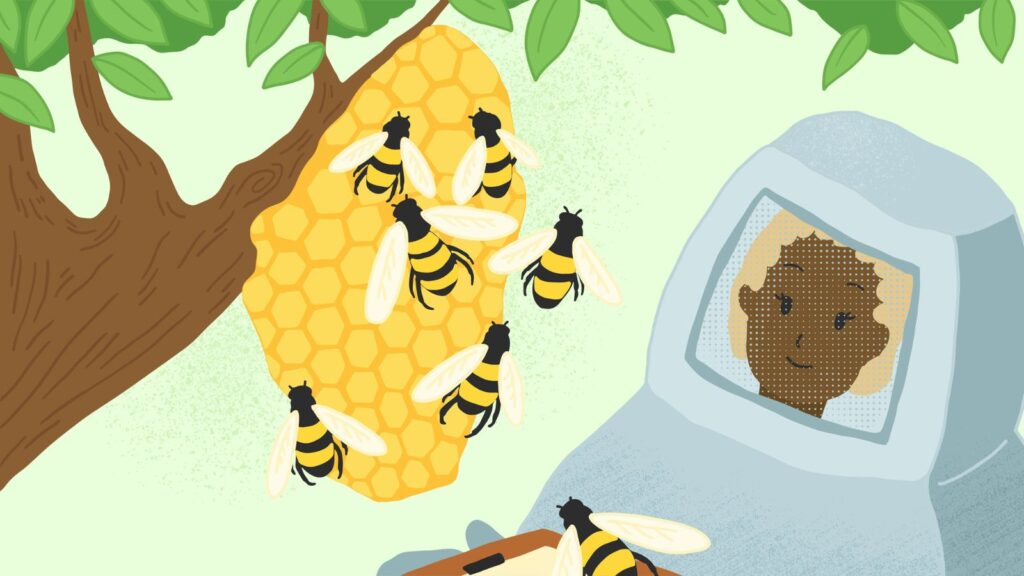This article was written with Gary Wilson.
If you correct your mind, the rest of your life will fall into place.
This is because the mind is the governing aspect of a human life.
Eliminate mental muddiness and obscurity; keep your mind crystal clear.
Quiet your emotions and abide in serenity.
—Hua Hu Ching (collection of Daoist wisdom)
Fed up with the Dow? Try the Dao. Esoteric traditions teach that our thoughts shape our experience of reality. In today's world, where structures that once seemed granite-solid are shattering like falling icicles, what ability could be more welcome than using conscious thoughts to bring about abundance, sanity and sustainability for a change?
In my experience, the concept of conscious creation is valid — with a few caveats. First, the most significant choice I can make in shaping my reality is whether to follow my impulses or steer for inner equilibrium and clearer perception. Second, the way I manage my sexual energy plays an unsuspected role in my ability to maintain clear perception. Third, although I can definitely use my thoughts to improve my own experience, it takes a critical mass of us to change the course of our collective reality.
Why can't I have what I want?
If our thoughts manifest on the material plane, why don't we get exactly what we wish for? I believe the answer is subtle but simple. It's not just our conscious commands that mold our experience. Powerful gut feelings and the expectations they trigger play an even greater role in shaping our reality.
For example, we weren't visualizing global financial bubbles and economic collapse. So how did we collectively manage such a dismal outcome? It's a reflection of our inner turmoil. Unless we're feeling balanced, safe and whole, what we attract seldom meets our expectations. In fact, the more erratic, selfish, anxious or impulsive we feel, the more chaotic our results. As we'll see, these intense feelings also equate with neurochemical changes occurring deep in a part of the brain common to all mammals.
Think of Aladdin rubbing a magic lamp, except that his lamp takes into account his state of mind as he rubs. Let's say he's feeling irritable and sorry for himself. What he calls forth will automatically incorporate these elements. Maybe he feverishly chants "Ferrari, Ferrari, Ferrari," but his lamp spits out a sleek, swift, ill-tempered camel.
Since we humans are always using our magic lamps (consciously or not), we benefit from tactics that let us do so for the good of all. Sages have proposed various approaches. For example, ninth century Indian mystic Shantideva understood the cause and effect of desires, and therefore counseled selflessness:
All the joy the world contains has come through wishing happiness for others. All the misery the world contains has come through wanting pleasure for oneself.
The Buddhists teach their own strategy. Cravings and aversions create suffering, so we overcome suffering by keeping a steady, calm and attentive state of mind. By watching our thoughts, we gradually keep them from galloping off in impulsive directions to manifest as short-term pleasures and long-term misery.
Still other mystics emphasize the wisdom of aligning our wills with a force beyond our short-sighted human aims. Christians seek this end with the prayer "Thy will be done." Daoists record multiple techniques to align with the Dao (the river of unseen energy that gives life to all of creation). Examples include feng shui, the I Ching (an ancient oracle), ch'i kung, acupuncture, and the cultivation of balanced sexual energy.
Sex's secret gift
The first Daoist book I read on cultivating sexual energy rang a profound bell. Sure, there was the niggling emphasis on avoiding orgasm and making love in a relaxed way (huh?), but at the same time the descriptions of effortless merging sounded so right. I wanted to learn more.
What I learned was not what I expected to learn. After many bruises and breakthroughs, I realized that the Daoists were right. Sex is a mighty tool for centering, balancing and aligning ourselves with the harmonious flow of life (in which our needs are met effortlessly in concert with everyone else's).
My husband and I have been experimenting with this peaceful form of lovemaking for the eight years of our relationship. Both of us are delighted with the harmony between us, which is a far cry from the unsettling dramas of our previous relationships, and the unexpected decrease in sexual frustration. We have also experienced some profound healing and a continued, surprising flow of abundance.
We keep asking ourselves if we're just extraordinarily lucky. Life isn't perfect, of course, but when we stick to this practice, life seems as exhilarating as zipping downstream in a white-water raft. We negotiate its challenges more like skilled rafters, laugh a lot, and feel good about our many accomplishments. Our needs are fewer, even setbacks seem to turn out well, and we also enjoy the times when we can allow the current to carry us while we relax.
After an inadvertent orgasm, however, we generally have the sense that our raft is hung up on unseen rocks and tree roots, or that no matter how hard we paddle we are being diverted out of the main channel into backwater, or even that we've flipped over in the rapids. Uneventful periods feel more like doldrums than opportunities to reenergize. Struggles arise, and the harmony between us is a bit strained.
Mind you, these very different impressions never seem to have a connection with our sex life, but after years of experimentation, the correlation is evident. Coming into alignment with the Dao appears to be a function of inner equilibrium, the very opposite of intense stimulation followed by a slow return to balance. (More on that in a moment.)
To understand our results, it helps to begin where the Daoists did. Sex can be used two different ways: for short-term pleasure and fertilization or for creating deep, lingering feelings of wholeness and serenity. One term for the latter approach is "angelic dual cultivation."
"Where ordinary intercourse is effortful, angelic cultivation [also called "the tai chi of sexual intercourse"] is calm, relaxed, quiet, and natural. Where ordinary intercourse unites sex organs with sex organs, angelic cultivation unites spirit with spirit, mind with mind, and every cell of one body with every cell of the other body. Culminating not in dissolution but in integration, it is an opportunity for a man and woman to mutually transform and uplift each other into the realm of bliss and wholeness."[i]
Imagine the wonders we humans could create if enough of us were in this tranquil, fulfilled state of mind? Also, notice how this description differs from most recipes for sexual tantra (or even modern Daoist teachings). With some exceptions,[ii] tantra tends to employ sex as a potent drug, a means of gaining an intense altered state prior to orgasm.
The hidden passion cycle
Despite its glorious pleasures, orgasm whips up inner turbulence — without our awareness. As one Daoist text of ancient teachings explains, ordinary intercourse places all emphasis upon the sexual organs, and whatever physical energy is accumulated is summarily discharged. The subtle energies are also dissipated and disordered. "It is a great backward leap."[iii]
Whoa! Orgasm…causes problems? This claim struck me as bizarre when I first came across it — especially because I read it in a book written by men.[iv] I've since learned that new lovers always react just as I did, because for them a temporary dose of honeymoon neurochemistry masks the evidence of the subtle, flickering changes that follow orgasm. Nevertheless, modern research is starting to confirm that orgasm indeed dissipates and disorders our subtle energies-because it's the peak of a longer cycle.[v]
Deep in a primitive part of the brain known as the reward circuitry, orgasm equates with a mighty surge of a neurochemical called dopamine. It's the "I've gotta have it" neurochemical. It drives mammals to do things that furthered their ancestors' survival, whether on not those things are in their individual best interests. In mankind's case these things include the tendency to gorge on high-calorie food, take risks with little attention to long-term consequences, and above all, gratify our sexual desire. In other words, it is not the job of these primitive impulses to move us toward lasting harmony, happiness, or heightened spiritual awareness. Nor toward abundance and sustainability. Bummer.
When dopamine surges during sexual arousal we feel as invincible as a hedge fund mogul unfettered by regulation, foresight, or concern for others. Indeed a Dutch scientist reported that brain scans of people having orgasm resemble those of people shooting heroin.[vi] However, just like a drug high, this temporary infusion of feel-good neurochemicals at climax does not last. Dopamine drops after orgasm, and other neurochemical shifts can make dopamine levels bounce around for days.
Without dopamine at its ideal levels during the recovery period, our feelings and even our perception of the world can vacillate. In a recent experiment, subjects whose dopamine was artificially lowered had difficulty resisting short-term rewards despite long-term negative consequences.[vii]
This neurochemical roller coaster ride (or "passion cycle") typically creates unnecessary turbulence for up to two weeks — although most of us certainly will not connect any wobbles in perception with the great sex that caused them. At most we realize that we, or more likely, our partner, seems irritable, over-sensitive, defensive, unforgiving, apathetic, unloving, clingy, hyperactive, or whatever.
Often we have a sense that something isn't right. Something is missing (adequate dopamine). Maybe we're bored. We definitely feel as if our needs aren't being met. Sadly, such feelings can paradoxically increase sexual frustration while making us less enthusiastic about emotional closeness. When dopamine drops, a lover may suddenly look like cold pizza, causing us to wonder if we picked the wrong person. This hidden mammalian program urges us toward new love interests (which always offer a dopamine rush of anticipation). Yet we pair-bonding humans tend to be the big losers when we pull away from our best source of feelings of wholeness and balance: affectionate contact with a close, trusted mate.
In any event, the lower the low (that is, the more intense the initial high), the more it tends to impair our concentration and agitate us. We're now primed for any hint of relief — that is, anything that will raise our dopamine and make us feel good again.
Why wait out the discomfort until we come back into balance naturally? If we just take a risk, or pursue a high (or a novel partner), our dopamine will instantly soar above normal levels and we'll feel like Superman again. Of course a spike of dopamine also tends to make us self-absorbed and single-minded about pursuing our chosen cure. This can make us do things we would not even consider doing if we were in balance.
So it is that we unwittingly train ourselves to bounce from penthouse to basement and back again — while losing touch with life in the center. Worse yet, too much stimulation actually desensitizes us. We get less and less bang for our buck, and must seek novel, or more extreme, stimulation to find relief. Could it be that the latest financial crash is a signal that humanity reached a tipping point where the good feelings of the highs could no longer mask the lows they inevitably produce? Think bubbles and bursting bubbles.
As we'll see in a moment, sex could help sustain inner equilibrium. Yet the typical passion cycle is an example of how the body-mind connection can set us on an erratic course of highs and lows when instincts alone pilot us. Climax innocently shifts our neurochemistry, our feelings fluctuate, our perceptions temporarily become clouded, and even our values and priorities may waver — all without our conscious awareness. The passion cycle built into fertilization-driven sex can thus naturally give rise not only to the good feelings of orgasm, but also to the emotional extremes, angst and impulsive, self-centered behavior that the sages warn against.
Sex: problem and solution
Ancient Daoist sages taught that sex is like fire or water. Fire and water, they noted, could aid a man…or kill him. The Daoists mastered a way to use sex without mood swings. They observed that intercourse itself is beneficial to both lovers, an effective tool for creating deep feelings of lingering wholeness. Sure enough, recent research supports the idea that affectionate contact between partners reduces stress, speeds healing, improves immunity, and strengthens emotional bonds.[viii]
By making love without intense neurochemical highs (orgasm, or the edge of orgasm), ancient Daoists not only escaped subsequent lows, but recorded heavenly feelings of profound inner peace. Their sex manuals, such as Secrets of the Jade Chamber and The Dangers and Benefits of Intercourse with Women, actually refer to the phenomenon of man and woman achieving immortality together through conservation of sexual energy. (You'd definitely want a solid 401(k) retirement fund in this event!)
Dangers and Benefits says this profound state is achieved through a combination of deep penetration, low arousal, and visualizations of energy moving through the body.[ix] Exposition of Cultivating the True Essence explains that lovers can only tap this hidden potential in sex when the unstable male sexual energy (1) is aroused without "bursting out," (2) welcomes the more stable yin energy, and (3) fuses with it.[x]
Whatever its ultimate potential, sex may be one of the most accessible fulcrums for shifting our collective mindset from recklessness and scarcity to abundance and sustainability. At present when we make love we unthinkingly hop onto the roller coaster of highs and lows (subtle or pronounced). Yet with some practice we could be using sex to move beyond the self-generated dissatisfaction that leads us to clutch at each new temptation. With stable feelings of wholeness and inner peace, it's easier to make inspired choices that serve our collective best interest.
"Those in future generations who study and practice the truth of these teachings will be blessed. They will acquire the subtle light of wisdom, the mighty sword of clarity that cuts through all obstruction, and the mystical pearl of understanding that envelops the entire universe. They will attain the insight necessary to perceive the integral truth of the Dao. Following this truth with unabashed sincerity, they will become it: whole, courageous, indestructible, unnamable."[xi] —Daoist master, Laozi (Lao Tzu)
[i] Hua Hu Ching, trans. Brian Walker, (HarperSanFrancisco: 1992): Section 69, p. 88.
[ii] Diana Richardson, The Heart of Tantric Sex, (Australia: O Books, 2003).
[iii] Hua Hu Ching: Section 69, p. 88.
[iv] Mantak Chia (and Michael Winn), Taoist Secrets of Love: Cultivating Male Sexual Energy (NY: Aurora Press, 1984).
[v] Marnia Robinson, Cupid's Poisoned Arrow: From Habit to Harmony in Sexual Relationships (Berkeley: North Atlantic Books, 2009): chapter 5.
[vi] Gert Holstege, et al., "Brain Activation during Human Male Ejaculation," The Journal of Neuroscience, (October, 2003) 23(27): 9185-9193; and "Orgasm Akin to a Shot of Heroin." Holstege's comments in the Dutch press in 2003: http://www.reuniting.info/science/orgasm_akin_to_heroin_shot.
[vii] Lieuwe de Haan, et al, "Subjective Experiences During Dopamine Depletion," Am J Psychiatry (September, 2005) 162:1755.
[viii] Robinson, Cupid's Poisoned Arrow: chapters 7 and 8.
[ix] Douglas Wile, The Art of the Bedchamber (New York: State University of New York Press, 1992): 45, 48.
[x] Ibid: 8, 50.
[xi] Hua Hu Ching: Section 79, p. 103.
Image by Biggunben, courtesy of Creative Commons license.















